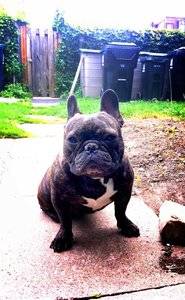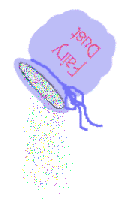- Joined
- Apr 30, 2005
- Messages
- 42,064
Tons of dust <3
Thanks Dane, that does help actually.
My little guy is a Peke, he also has the reflux that can go with it that makes aspiration more of a risk. Do you still have your little one?

Thanks Dane, that does help actually.
My little guy is a Peke, he also has the reflux that can go with it that makes aspiration more of a risk. Do you still have your little one?
Back to your little guy - are they just going to enlarge his nostrils - or is it more involved than that?
Oh Pierre was so special, I'm very sorry for your loss.
My little man is 2 so he's young, the plan is to do the nostrils and reduce the soft palate, for now they would leave the laryngeal saccules in place due to the risk of further swelling and as he's young, they feel he might not need that anyway.
He's on reflux meds, anti nausea drugs and tomorrow I've to take him back for the fluoroscopy, he wouldn't eat for them yesterday so I have to bring him a packed lunch of cheddar cheese, mozarella, poached chicken, hard boiled egg and Caesar small dog so they can get him to eat something, those are all his favourites. Thankfully his weight is good so that helps.
They offered him dry kibble to mix the medicine for the procedure in then he was of course completely suspicious and wouldn't eat their tinned meat.
I'm sorry I missed this comment when I advised of a second opinion. My apologies.Thank you, I need all the dust I can get! I have such cold feet and keep swinging between having it done and not. I am fortunate that I'm at one of the best referral centres in Europe so there's that, the vet is a world specialist in soft tissue surgery.
Hi Lorelei!
I haven't examined your dog of course, but many brachycephalic animals would benefit from the procedure. If you are at one of the top referral centers in Europe, with a board certified surgeon, I think you're in good hands. Many animals, both dogs and cats, improve dramatically after surgery. The potential for it "not to work" exists, but it really can't hurt even if it isn't a complete cure. It takes stress off the heart, reduces the chances for future tracheal collapse, etc. I've seen several patients who had a new lease on life afterward, and I personally think it is worth doing. It's a shame what we've done with breeding practices, but for those alive now suffering with this and struggling for every breath the surgery can be a literal lifesaver!
https://www.vet.cam.ac.uk/boas/about-boas




Thanks everyone! Just got back from taking him for another try with the fluoroscopy ( they want to check for megaoesophagus) and the little beggar wouldn't eat any of the delicious foods I packed....*sigh* so they weren't able to do it.
So in the morning he's due to have a scan then surgery.
Hi Lorelei!
I haven't examined your dog of course, but many brachycephalic animals would benefit from the procedure. If you are at one of the top referral centers in Europe, with a board certified surgeon, I think you're in good hands. Many animals, both dogs and cats, improve dramatically after surgery. The potential for it "not to work" exists, but it really can't hurt even if it isn't a complete cure. It takes stress off the heart, reduces the chances for future tracheal collapse, etc. I've seen several patients who had a new lease on life afterward, and I personally think it is worth doing. It's a shame what we've done with breeding practices, but for those alive now suffering with this and struggling for every breath the surgery can be a literal lifesaver!
https://www.vet.cam.ac.uk/boas/about-boas
and to go on, the Frenchie I still have is going to need this surgery too. He has very constricted nares and I can tell it's coming. He's only two years old. I'll probably have it done this winter.
Don't worry too much. They do fine if the surgeon knows how to do it right.
Good luck - please keep us posted!